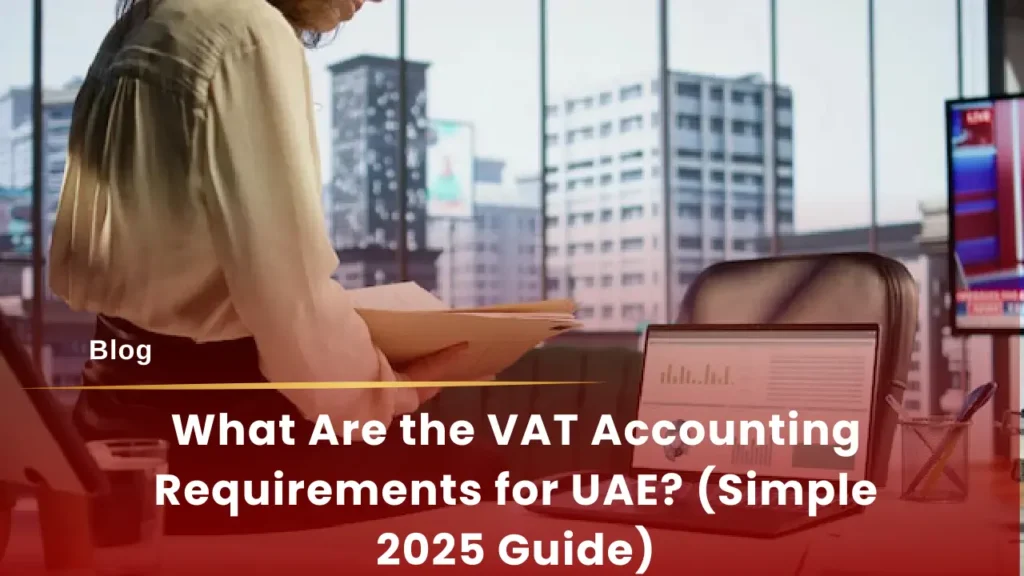What is VAT in UAE?VAT is referred to as a type of general consumption tax found around the world in over 150 countries. It is ultimately borne by the final consumers, while businesses collect and accounts for the tax, acting as tax collector on behalf of the government. Businesses collect tax from the customers and pays the government, while businesses also receive funds from the government on tax that is paid to its suppliers.
VAT in UAE was introduced on January 1, 2018. It provides the UAE a new source of revenue and income that will be utilized to provide high quality public services. It also helps the government to reduce dependance on main revenue resources, that are (oil and hydrocarbons).
- What is VAT?
- Difference between Sales Tax and VAT
- VAT Implementation in UAE
- How to register for VAT
- Registration criteria for VAT
- Which businesses are subjected to VAT?
- How VAT is Collected in UAE?
- Is there a fine for not filing a VAT return?
- How to file a return for VAT?
What is VAT in UAE?
VAT or Value added tax is the indirect tax imposed on use or consumptions of services and goods that are bought and sold and is applied on every stage of supply chain, where value is added from initial production to the final sale.

Types of VAT in UAE
There are three main types of VAT treatment in the UAE:
Standard Rate (5%) – This applies to most goods and services sold in the UAE.
Zero-Rated VAT (0%) – This is applied to exports, international transportation, some healthcare and education services, and select precious metals.
VAT-Exempt – Some categories, such as residential properties, public transport, certain financial services, and bare land, are exempt from VAT.
Understanding the type of VAT applied to your business is essential for accurate tax reporting and compliance.
What Is the Purpose of VAT in the UAE?
VAT was introduced in the UAE to create a new, consistent source of revenue for the government. This helps fund important public services such as healthcare, education, transportation, infrastructure, and more. By implementing VAT, the UAE is reducing its reliance on oil and hydrocarbons and moving toward a more diversified and sustainable economy. The system is managed by the Federal Tax Authority (FTA), which oversees compliance, collection, and enforcement.
VAT in Free Zones and Designated Zones
Not all Free Zones are treated the same under VAT law. The UAE Cabinet has classified some Free Zones as “Designated Zones,” which are treated as outside the UAE for VAT purposes. Transfers of goods between Designated Zones are not subject to VAT, while transactions with mainland UAE usually are. Businesses operating in Free Zones must be aware of their zone’s classification to apply VAT correctly and stay compliant.
Difference between Sales Tax and VAT
A sales tax is also a consumption tax like VAT t and is generally applied on transactions that involve goods in several countries, and on the final sales to the customers.
While VAT is more sophisticated approach to taxation and is implemented on services and goods, including imported goods, and applied throughout the supply chain, including the final sale.
VAT makes businesses serve as tax collectors on behalf of the government and it takes out tax evasion and misreporting.
VAT Implementation in UAE
The UAE government provide many different public services to their citizens and residents including roads, waste control, public schools, hospitals, parks, and police services. All these services are paid for using government budgets. VAT provides UAE a new source of income, which contributes to provide high-quality public services in the future. It also assists the government in reducing dependence on the revenue acquired from oil and other hydrocarbons. VAT was introduced in UAE at a standard rate of 5%.

How to register for VAT
An application is filled by providing information and certain documents as required. After getting all the necessary information required documents, FTA may issue the (TRN) Tax Registration Number within 20 days.
All the businesses can register for VAT by the eservices section on the FTA website.
Registration criteria for VAT
Any business should be registered for VAT if its imports and taxable supplies are more than AED 375,000 per year.
It is optional for those businesses whose imports and supplies are more than AED 187,500 per annum. VAT is also applicable on foreign businesses when visiting the UAE.
Which businesses are subjected to VAT?
VAT equally applies on those businesses which are tax-registered and managed on the main land of UAE and also in the free zones. Certain free zone must be treated as outside the UAE for tax purposes If the UAE Cabinet defines them as a designated zone and the transfer of goods among designated zones are tax-free.
VAT is exempted from various business categories. These are:
- Local passenger transport
- Some financial services
- Bare land
- Residential properties
VAT will be charged at 0% in zero-rated sectors regarding the main supply categories:
- Certain education services and relevant service/goods
- Exports of service/goods outside the GCC
- Few healthcare services and relevant service/goods
- International transport and related supplies to them
- Supplies of certain air, land and sea means of transportation
- Few investments grade precious metals
- Newly constructed houses under specific conditions

How VAT is Collected in UAE?
VAT-registered businesses collect the tax from the consumers in the form of 5% in the cost of services and taxable goods they purchase in the UAE. Businesses collect this tax at each stage of supply chain of goods or services.
UAE Tourists also pay VAT at the point of sale.
Is there a fine for not filing a VAT return?
There is fine of AED 1,000 applied on VAT registrant, if fails to file a tax return within the specified timeline, and fine of AED 2,000 will be imposed for repetition within 24 months.
A minimum fine of 2% is applied for first one week of the payable amount, then 4 % fine for first one month, then 1 % fine per day of the payable amount, but not more than 300 % of the tax value.
Due date for filing VAT Return?
The due date to VAT return filing is 28th of following month, when quarter ends. While some companies have a VAT filing every month.
How to file VAT return?
Businesses should file their tax return through the FTA portal electronically at: eservices.tax.gov.ae. Before filing the VAT return, make sure you met all the requirements for tax returns. Tax return Filing can be accurate if Accounting is satisfactory and completed. The accountant should have deep knowledge of VAT return treatment in UAE.
Failure to file a VAT return within mentioned time will make the violator liable for penalties according to the provisions of Cabinet resolution ref. 40 of 2017 on administrative sanctions for violations of UAE tax laws.
VAT Rates
Standard rate:
Companies registered as VAT in the United Arab Emirates will be charged a 5 percent tax.
Zero rate:
- Newly constructed residential properties, within 3 years of their construction
- Certain education services
- Supply of certain Healthcare services
- Exports of services and goods outside the UAE
- International transportation, and their related supplies
- Supplies of certain land, sea, and air means of transportation (such as ships and aircrafts)
- Certain investment grade precious metals (e.g., gold, silver, of 99% purity)
Areas exempted from VAT:
- Local transport
- Supply of certain financial services
- Residential properties including sale and lease
- Bare land including sale and lease
VAT on High Sea Sales in UAE
High sea sales refer to goods sold while still in transit—before they arrive in the UAE. These transactions are considered out of scope for VAT in the UAE, meaning VAT is not applied. However, businesses must keep proper documentation to prove the sale took place before the goods entered the country. Consulting a VAT expert is recommended to ensure full compliance with reporting rules.
Out of scope transactions for VAT:
There are certain businesses which are out of scope transactions for VAT and need not to follow the registration and compliances. Includes high sea sales transactions, in which a UAE distributor directly ships goods from one country to another, that doesn’t involve any direct involvement with UAE
Working with Capital Plus Auditing:
It is the time to work with a best accounting and auditing specialist to ensure you understand the new VAT rules, that will help you with specific advice and resources to help you with everything and anything regarding VAT throughout 2022 and beyond for your needs.
In addition to helping, you with your VAT problems, CPA can help you with setting up your business.
AT CPA you can fast-track setup process and get important advice on the type of financial institution by working with a company formation specialist. It’s the fastest and easy way to get set up in the UAE, by letting us take care of all the details and ensuring your application is free from errors.
Here at CPA, we offer you the best solutions and assistance to start your company in the UAE. You get reliable, quick and unbiased advice on your unique business setup requirements.
We hope this article has helped you learn some of that knowledge and mastery beyond what you’ve found so far.
If you have any questions about VAT related facts or anything else– we want to hear from you!






